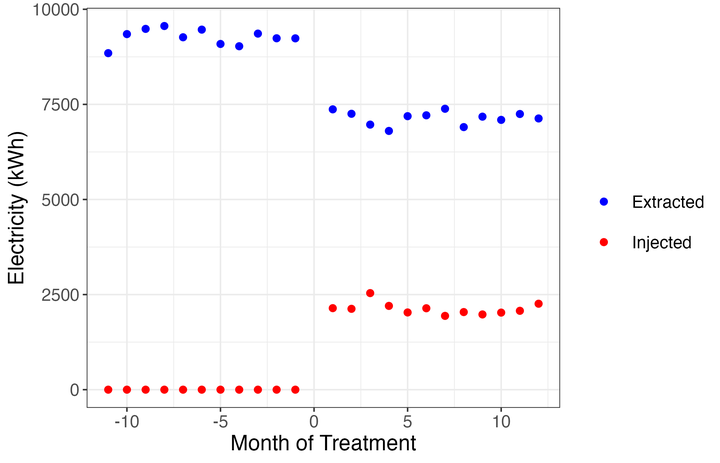The Impact of Solar Panel Installation on Electricity Consumption and Production: A Firm's Perspective
 Image credit:
Unsplash
Image credit:
Unsplash
Abstract
Since 2010, the Uruguayan government has fostered the installation of solar panels among firms to promote the production of small-scale renewable electricity. Under this policy, firms that have installed solar panels are allowed to feed any surplus electricity into the grid. Using a novel data set on firm-level electricity consumption and grid feed-in, we study the economic and environmental consequences of this policy. First, we find that installing a solar panel substantially reduces the amount of electricity extracted from the grid. Second, we find that it increases the electricity injected into the grid. Third, we find that it reduces CO2 emissions only marginally. Fourth, we provide evidence of a rebound effect, electricity consumption increases between 20% and 26% after solar panel installation. Lastly, we propose an alternative policy that allows firms to store their electricity surplus in batteries instead of immediately injecting it into the grid. This policy would further reduce CO2 emissions by 2.7% by allowing electricity injection into the grid at night when fossil fuel facilities satisfy most of the electricity demand.
Supplementary notes can be added here, including code and math.